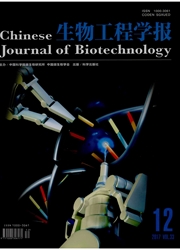

 中文摘要:
中文摘要:
通过随机突变和定向选择而进行的定向进化(又称分子进化或人工进化)在改造酶的催化特性和稳定性、扩展酶的底物范围等方面具有广泛的应用。近年来,定向进化也开始应用在对结构基因的启动子区域和具有调节功能的蛋白如转录因子等进行代谢工程改造,并成功选育了对环境胁迫因素具有较强耐受性,以及发酵效率提高的微生物菌种。以下着重介绍近年来启动子的定向进化,包括启动子的强度和调节功能的分子进化,以及细胞全局转录工程等技术在微生物代谢工程中的应用,这些定向进化技术使人们可以更精细地调节基因表达水平,并可同时改变细胞内多个基因的转录水平,是代谢工程研究新的有力工具。
 英文摘要:
英文摘要:
Directed evolution, which is also called molecular evolution, or artificial evolution, combines random mutagenesis and directed selection. In previous studies, it has been extensively applied for the improvement of enzyme catalytic properties and stability, as well as the expanding of substrate specificity. In recent years, directed evolution was also employed in metabolic engineering of promoters for improving their strength and function, and the engineering of global transcription machinery. These techniques contribute to breeding more tolerant strains against environmental stress, as well as strains with improved fermentation efficiency. In this article, we reviewed the applications of directed evolution in the metabolic engineering of promoters and global transcription machinery. These techniques enabled fine-tuning of gene expression and simultaneous alternation of multiple gene transcription inside the cells, and thus are powerful new tools for metabolic engineering.
 同期刊论文项目
同期刊论文项目
 同项目期刊论文
同项目期刊论文
 期刊信息
期刊信息
